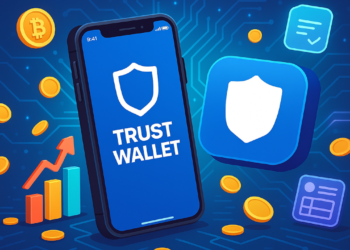Blockchain technology has revolutionized digital systems, bringing decentralization, security, and transparency to the forefront. While much attention is given to validators in Proof of Stake (PoS) blockchains, an equally vital group works behind the scenes to support the network’s integrity and decentralization: nominators. Understanding the role of nominators can provide a deeper insight into blockchain’s functionality and the mechanisms that ensure its trustworthiness.
This comprehensive guide will explore what nominators are, their responsibilities, why they are essential, and how to become one. We’ll also highlight tools like hardware wallets to protect your assets if you choose to participate as a nominator.
What Are Nominators?
In Proof of Stake (PoS) and its variations, nominators are participants who support the network by staking their cryptocurrency and backing specific validators. They act as a bridge between the broader community and validators, contributing to network security and decentralization.
Nominators delegate their staked tokens to validators, signaling trust in their ability to validate transactions honestly. By doing so, they share in the rewards earned by these validators. However, this comes with risks, as nominators can also face penalties if their chosen validators act maliciously.
Nominators are primarily associated with blockchain networks like Polkadot, which uses a specific version of PoS known as Nominated Proof of Stake (NPoS). This system ensures a fair and efficient network by leveraging both validators and nominators to maintain its integrity.
How Do Nominators Work?
1. Staking Tokens
Nominators participate in the network by locking up their tokens as a stake. This stake is a financial commitment and an indication of trust in the validators they support. The amount staked determines the influence a nominator has in the network.
2. Selecting Validators
A critical responsibility of nominators is choosing reliable validators. Nominators must research and evaluate validators based on factors such as:
- Uptime: The reliability of the validator’s node.
- Reputation: Past performance and adherence to network rules.
- Commission Rates: Fees charged by the validator for their services.
3. Earning Rewards
When the nominated validators successfully validate transactions and propose blocks, nominators receive a share of the rewards. The rewards are proportional to the amount staked and the validator’s performance.
4. Risk Management
While rewards can be lucrative, nominators must also consider the risks. If a validator engages in malicious activity or violates network rules, both the validator and their nominators may face penalties, such as slashing (a reduction of staked tokens).
Why Are Nominators Important?
Nominators play a pivotal role in maintaining the security, decentralization, and efficiency of PoS networks. Here’s why they are essential:
1. Enhancing Decentralization
By supporting multiple validators, nominators help distribute power across the network, reducing the risk of centralization and making the blockchain more resilient.
2. Incentivizing Honest Behavior
Nominators’ stakes act as a financial incentive for validators to act honestly. Validators who violate the network’s rules risk losing not only their own stake but also the stakes of their nominators, ensuring accountability.
3. Boosting Network Security
The combined stakes of validators and nominators increase the economic cost of attacking the network, making it more secure against potential threats.
4. Supporting Scalability
By delegating staking responsibilities to validators, nominators enable the network to handle a higher volume of transactions efficiently.
Becoming a Nominator
1. Choose a Blockchain
To become a nominator, start by selecting a blockchain that uses a PoS or NPoS consensus mechanism, such as Polkadot or Kusama. Research the network’s requirements and staking process.
2. Acquire Tokens
Purchase the network’s native cryptocurrency and ensure you have enough tokens to meet the minimum staking requirement. For example, Polkadot requires a certain amount of DOT tokens to participate.
3. Research Validators
Thoroughly evaluate potential validators based on their performance, reliability, and fees. Diversify your nominations to minimize risk.
4. Use a Secure Wallet
Protect your staked assets by using a reliable wallet. Hardware wallets like Ledger or Trezor are excellent options for securely managing private keys and staking tokens.
5. Monitor Your Nominations
Regularly review the performance of your chosen validators and adjust your nominations as needed to optimize rewards and minimize risks.
Risks and Challenges for Nominators
While being a nominator can be rewarding, it’s not without challenges:
- Validator Misbehavior: If a chosen validator acts maliciously or fails to meet network requirements, nominators may face penalties.
- Market Volatility: The value of staked tokens can fluctuate, impacting the overall returns.
- Slashing Risks: Nominators share the responsibility for validator actions and may lose a portion of their stake in case of violations.
- Research Demands: Choosing the right validators requires time, effort, and ongoing diligence.
Protecting Your Assets as a Nominator
To mitigate risks and safeguard your assets:
- Diversify Your Nominations: Spread your stake across multiple validators to reduce the impact of individual failures.
- Use Hardware Wallets: Tools like Ledger and Trezor provide robust security by keeping private keys offline.
- Stay Informed: Keep up with network updates and validator performance to make informed decisions.
The Future of Nominators in Blockchain
As blockchain technology continues to evolve, the role of nominators will likely become more prominent. Innovations like parachains and sharding aim to enhance scalability and efficiency, creating new opportunities for nominators to contribute to the ecosystem.
Furthermore, as decentralized finance (DeFi) and other blockchain-based applications expand, the demand for secure and efficient staking mechanisms will grow, solidifying the importance of nominators in maintaining network stability.
Final Thoughts
Nominators are a cornerstone of PoS blockchains, ensuring security, decentralization, and trust within the network. By understanding their role and responsibilities, you can make informed decisions about participating in staking and supporting blockchain ecosystems.
If you’re considering becoming a nominator, remember to prioritize security by using trusted hardware wallets like Ledger or Trezor. With the right tools and knowledge, you can play a vital role in shaping the future of blockchain technology.
Disclaimer: This blog is for informational purposes only and does not constitute financial or investment advice. Always conduct your own research and consult with a professional advisor before making financial decisions related to blockchain, staking, or nomination. Use all products and services at your discretion.










